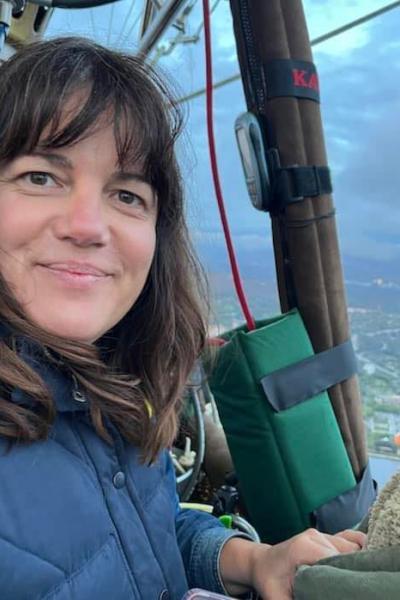
Associate Professor
Natasha Fijn
Dr Natasha Fijn is Director of the Australian National University’s Mongolia Institute. She has been awarded a mid-career ARC Future Fellowship to enable her to conduct research on 'A Multi-species Anthropological Approach to Influenza' (2022-2026), while she is also part of an ARC Discovery team, focussing on the transfer of Mongolian medicine and healing knowledge amongst the herding community.
As an ethnographic researcher and observational filmmaker, she has conducted extensive field research in remote places, including the Khangai Mountains of Mongolia and Arnhem Land in northern Australia. She focusses particularly on multispecies ethnography, including more-than-human sociality and concepts of domestication.
Natasha was awarded a Fejos Fellowship in Ethnographic Film from the Wenner-Gren Foundation to make a documentary ‘Two Seasons: multispecies medicine in Mongolia’ during 2017. She was a Research Fellow as part of ‘Domestication in the Era of the Anthropocene’ team based at the Centre for Advanced Studies in Oslo in 2016. Earlier, she held a College of the Arts and Social Sciences Postdoctoral Research Fellowship at the ANU (2011-2014), which included the production of the film 'Yolngu Homeland' (2015). Her influential book, ‘Living with Herds: human-animal coexistence in Mongolia’ was published by Cambridge University Press in 2011.
Natasha has edited a number of books and special journal issues, including two themed journal issues and a special section with a focus on visual anthropology and ethnographic filmmaking. In 2020 she edited two special issues, one on multi-species anthropology in the Inner Asia journal and another on sensory anthropology in The Australian Journal of Anthropology. Natasha is also a founding committee member of Plumwood, a conservation organisation acting as steward for the land and biocultural heritage aspects on Plumwood Mountain in New South Wales.
Visual anthropology, sensory anthropology, observational filmmaking, animal studies, ecological humanities, environmental anthropology, animal domestication, Mongolia, Inner Asia, Yolngu, Indigenous Ecological Knowledge, biocultural heritage, Ethnoveterinary medicine, Mongolian medicine, multispecies ethnography